52 Ancestors #18: Joseph Lemaitre, Indian Scout
Imagining what my ancestors looked like is akin to devising physical attributes of characters in novels. I put together descriptions, stories, history, and even old movies … anything that helps me create an image in my mind. I usually end up with a cross between family features and movie characters. I don’t conjure nonexistent photos for all my ancestors, only those who catch my attention.
Admittedly, very few are as fascinating as Joseph LeMaitre. He is my 3rd great grandfather on my daddy’s side. In my mind, he his tall with a jagged jaw line, sandy brown hair, the same blue eyes my daddy had, rough hands from hard work, and a quick wit.
Claude Joseph LeMaitre
Joseph was born on January 28, 1831 in Sainte-Menehould, France. I have yet to discover his parents. For reasons unknown, Joseph left France for America, arriving sometime between 1850 and 1852. He does not appear on a federal census until 1860. While I have found several “Lemaitres” on ships passenger lists, first names are often left blank. I’m equally unsure whether he arrived in America directly or by way of Canada.
On December 24, 1852, Joseph married Veronique Voirol (1829-1883) in Ft. Wayne, Indiana. They remained in Indiana for 6 years.
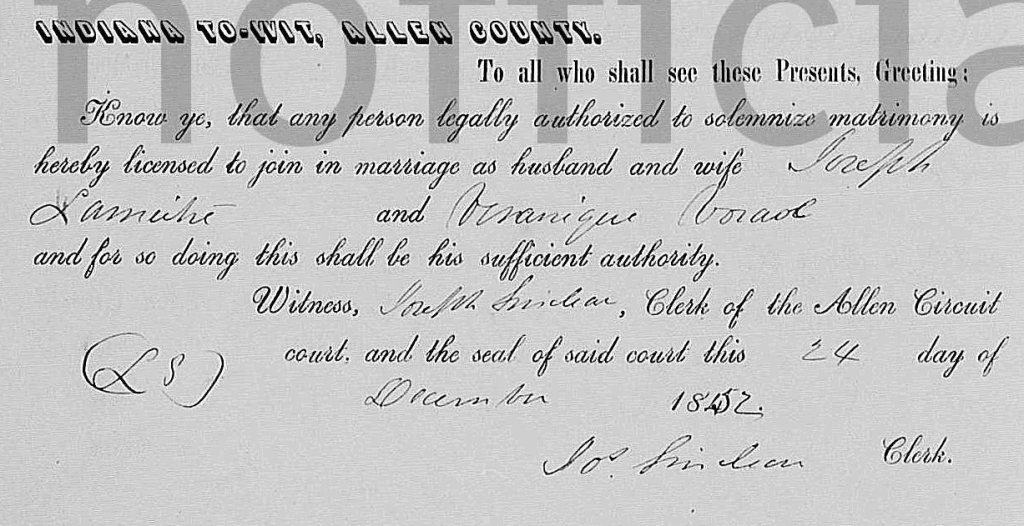
Joseph and Veronique had 7 children:
- Edward (1853-1933)
- Francis (Frank) (1857-1918)
- Julia (1859-1896)
- William (1863-1934)
- Isabelle (my 2nd great grandmother) (1866-1951)
- August Louis (1868-1945)
- Marion (1870-1955)
Fur Trapper
My daddy always told me that Joseph was a fur-trapper who fell in love with a Blackfoot woman. This story was passed down from his grandmother, from her mother, Isabelle … Joseph’s daughter. As the story goes, Joseph whisked his love back to France where she was educated. They returned to America some time later. Now, I’ve mentioned in other posts that my great-grandmother was really good with the truth stretching. It’s plausible that Joseph was in America long enough to be a fur-trapper, but I’ve found no evidence that Veronique was whisked away from a Blackfoot tribe and educated in France. I suppose anything is possible.
Military Service
In 1858, when Minnesota became a state, Joseph moved his family to Lowel where he was hired as an Indian scout. While it was less common for a White man to be hired as an Indian scout, it wasn’t unheard of … and this lends credence to my great-grandmother’s inclination that Joseph was a fur-trapper. I’m still working on the Blackfoot tale!
Joseph enlisted as a Private in the Minnesota Harrington’s Infantry Company on August 23, 1862. He mustered out on November 1, 1862. These men were to have fought in the Civil War, but, nearly at the 11th hour, were called back to Hutchinson to defend the area during the US-Dakota War/Battle of Hutchinson. Joseph is listed as a Hutchinson Guard Citizen Soldier.
Joseph was among about 80 men who served under Captain Lewis Harrington for 70 days while defending Hutchinson. This was a terrifying time for the settlers in this part of Minnesota … it was equally terrifying for the Dakota who found themselves starving to death as a result of being forced off land they had relied on for generations. Stories were passed down through generations of my family about Veronique hiding with her children in their cellar during Indian raids. While I care not to rehash the politics of the era, try to imagine what that would have been like … home alone with three small children while your home is under attack.
I believe Veronique, pregnant with her 4th child, return to Indiana for a time while Joseph remained in Minnesota. Although Joseph mustered out of the military in late 1862, he remained in the Hutchinson area, likely protecting his own assets. He was part of a search and rescue mission on the night Chief Little Crow was killed by Nathan Lampson and a son. The elder Lampson was wounded and the men were separated. The younger Lampson fled to Hutchinson to raise alarm and send help for his father. Nathan Lampson’s youngest son, Joseph and 3 other citizens immediately set out to find him. While Nathan and the search party crossed paths, the group discovered Little Crow’s body and removed it to Hutchinson. At the time, this was cause for celebration, and they did just that.
Today, you can see a bronze statue of Little Crow overlooking the Crow River.
Joseph died at age 39 on December 10, 1870. I hope his death was not in vain.

While I know nothing about Joseph’s life before his marriage to Veronique, his time here in America was certainly interesting. Joseph is the kind of ancestor who elicits one’s imagination to run wild with tall tales of heroes … or scoundrels. In reality, I very much doubt his life was anything but normal with an upheaval thrown in during a time of great change for our Nation.


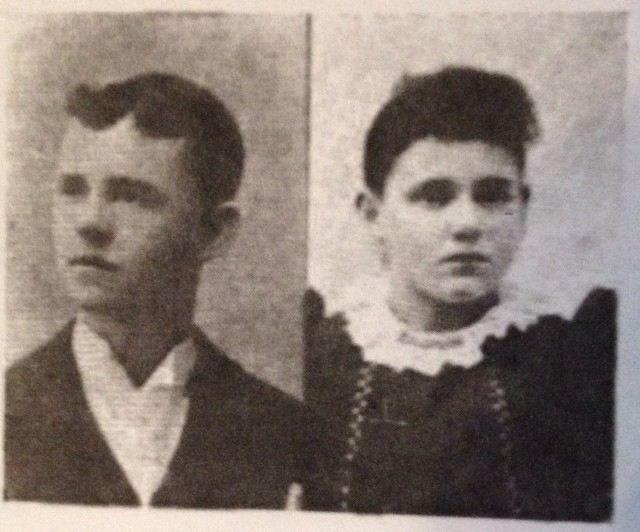
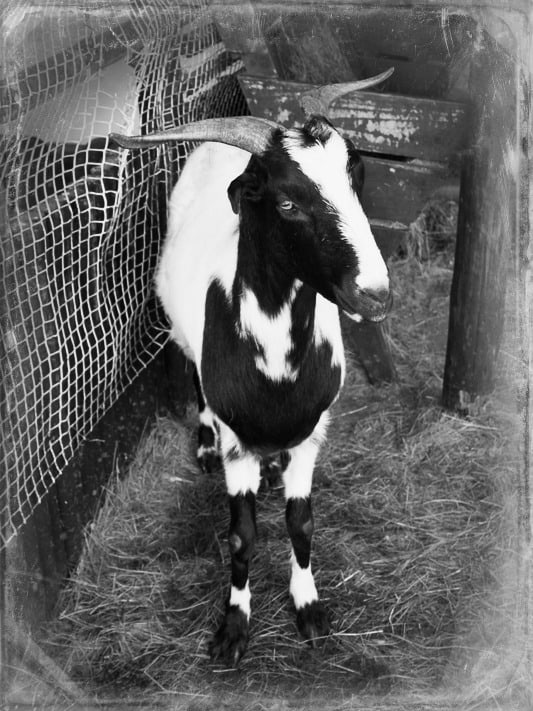
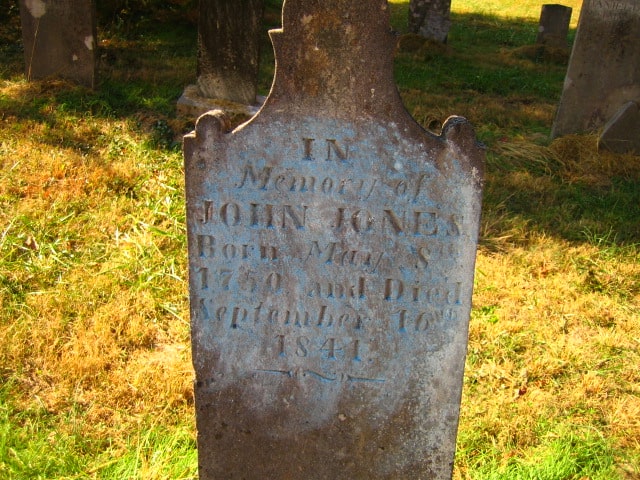

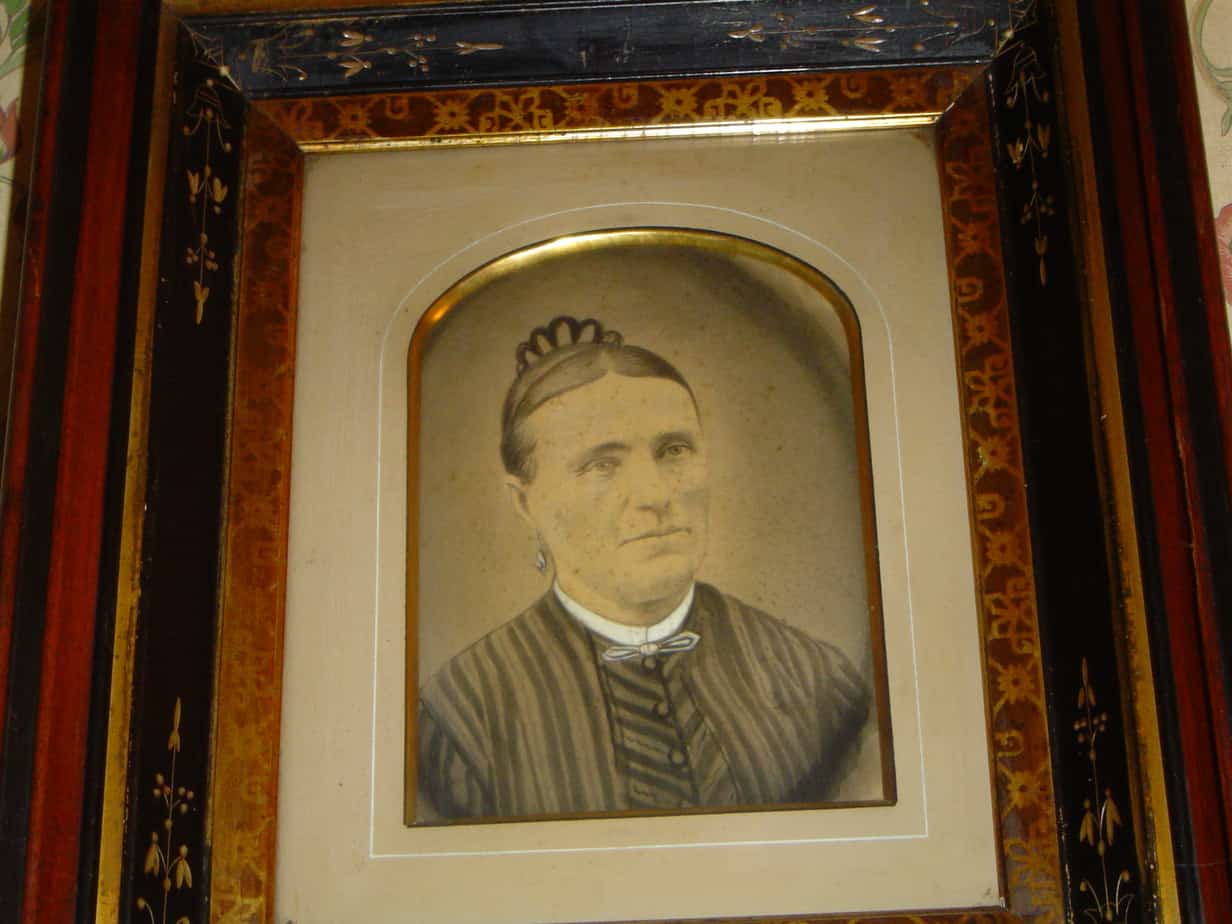
Very interesting. Best wishes. Folllowed from 52 weeks….
Thanks for stopping by!